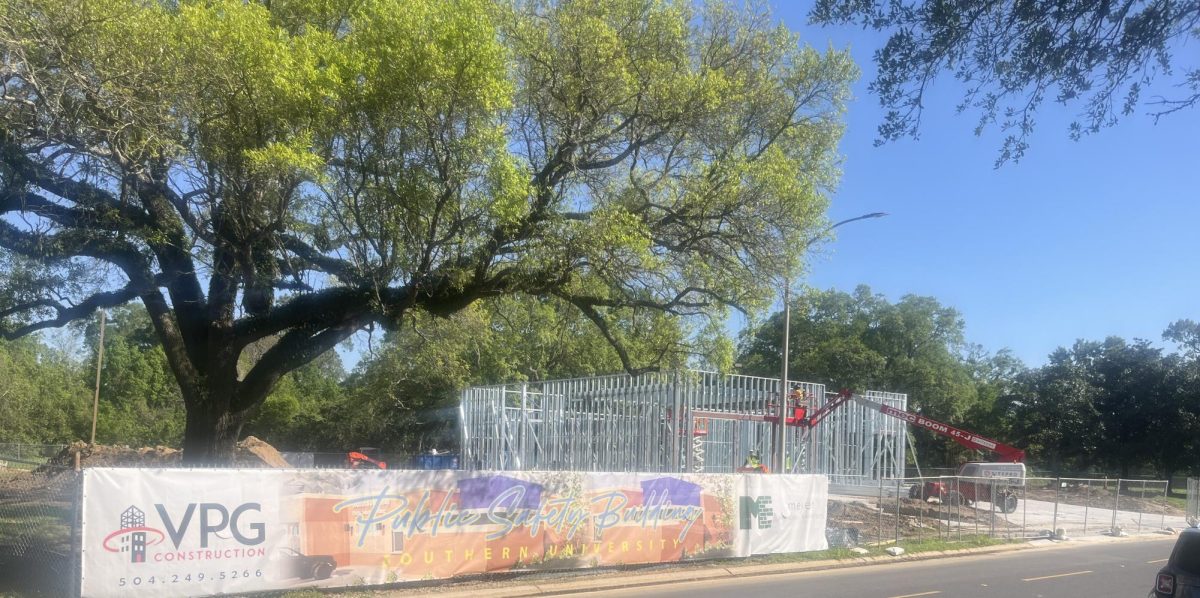There is a barbershop in Baton Rouge on the corner of Eddie Robinson, Sr. Avenue and Myrtle Street. On any particular day, the shop is bustling with customers who come in and sit and watch the news on the television as they wait to get their hair cut, beards trimmed or faces shaved.
On this particular day, the news comes from next door at the historic Lincoln Theater. The Reverend Al Sharpton’s premiere visit to the “Capital City” stirs up talk among the customers.
“He has a right to his opinion,” said one barber. “That’s why there is a First Amendment.”
“I’m not going to see him,” said another. “I have another engagement and I don’t think he is going to do that well.”
“I am going to see him,” said a third. “I want to hear what he has to say. He can’t do no worse than the others.”
During Sharpton’s quick-but powerful visit to Baton Rouge last Saturday, he had a lot to say and what he said had a long-lasting impact that could be echoed throughout the community.
“I think it speaks volumes,” said attorney Kenneth R. Fabre’. “…And the fact that he is constantly busy and working…This (Baton Rouge) is definitely not a top priority for any presidential candidate, but he is coming to the heart of the African American community-and at least he is serious about running.”
Others had questions for Sharpton, who was scheduled to appear at 7 p.m., but was an hour late arriving to a crowd of about 150 spectators.
“Arriving late is definitely not a good way to start if you want somebody’s vote,” said one attendee.
The 2004 presidential candidate’s tardiness did not weigh on the crowd’s minds long. As soon as Sharpton was introduced, he began to tell the citizens of Baton Rouge about his plight to become the 44th President of the United States.
November will mark the 20th anniversary of Jesse Jackson’s presidential bid and although Sharpton notes that times have changed, the ideals of Black America remain the same.
“I want to put focus on international issues,” said Sharpton. “I also want to focus on the implementation of more blacks in political offices.”
Sharpton said that Blacks were instrumental during the1984 president election.
It was Sharpton, along with Jackson and other members of the community that aided in the prison release of ANC President Nelson Mandela and that Blacks were evidently instrumental in having former Virginia governor Doug Wilder become the first black gubernatorial leader of any state in the Union. His message was that Blacks had to stick together.
“I want to know what he thinks about Senator (Carol Moseley) Braun (Dem., Ill.) diluting his vote,” said U.S. Air Force Major (Ret.) Luter Tommy. “I want to know why that is needed…I think that would be horrible for Blacks. It’s like-they don’t need to kill us; just give us the guns.”
Not only were people from Baton Rouge in attendance, but visitors from as far as New York City came to hear Sharpton speak, including Damon T. Hewitt.
Hewitt is an assistant counsel for the NAACP.
“I think that Sharpton brings a different perspective, a perspective that should be heard. I have not formed an opinion as to who I will support in the upcoming election as of yet, but I am ready and willing to hear from him,” said Hewitt. “He has fought a good fight when no one else would, and that is definitely important to me as a civil rights attorney.”
Concluding his speech, Sharpton mentioned he was against the war on Iraq and that President George W. Bush’s administration lacked the justification to go to war. He also stated that Blacks are occasionally looked upon as not being patriotic enough, but he felt that the African-American race was the most patriotic of all.
“Blacks have been more patriotic than any other nationality. Before there was Colin Powell, there was Adam Clayton Powell,” said Sharpton. “We went out and defended our country when our country wouldn’t defend us. We are fighting those same people who can come over to this country right now and receive more rights than we can.”
After his speech, Sharpton held an open forum for those with questions.
One of which was his role in the protest against the movie Barbershop. The movie, which was released last fall, did wonders at the box office and in video sales, but received poor reviews from Black leaders around the country.
Sharpton, along with Jackson and others protested the negative references in the movie that was made to some of the Black icons of the past.
“The movie was funny, but we don’t have to belittle our own to be funny,” said Sharpton. “They didn’t talk about Bill Clinton or Rudy Guiliani. Martin Luther King, Jr. died for us and that is not funny.”
He said that the producers and directors sent a written apology, but more should be done in Hollywood to prevent the ridicule and misrepresentation of Black leaders.
Sharpton left a standing ovation upon concluding his speech.
“I will support Sharpton because it is important for Blacks in general,” said T.J. Jemison, pastor of Mount Zion First Baptist Church. “His coming to a Black theater which happens to be owned and operated by Blacks means that he is not just a presidential candidate that will become a president for just a group, but for all people.”
Categories:
Sharpton Leaves Mark on Baton Rouge
February 28, 2003
0
More to Discover





